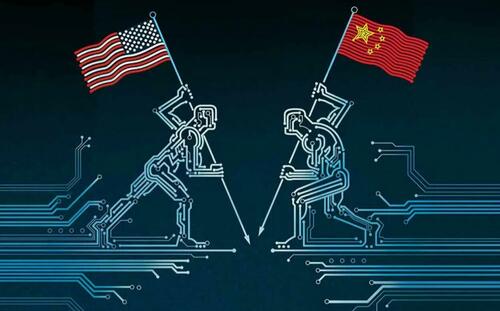Authored by Peter Tchir via Academy Securities,
Markets shrugged off high headlines on PPI, for a variety of valid reasons.
Now we can move on to CPI (where I see the “whisper number” as a lower than expectations print).
I’m more focused on tariffs.
I figured I’d check with ChatGPT if my perception was correct.
The media reaction to President Trump's tariffs in 2018 was largely negative, with widespread criticism from economists, business groups, and various sectors impacted by the tariffs.
1. Economists' View: The vast majority of economists believed that the tariffs would harm the U.S. economy. In a March 2018 Reuters survey, almost 80% of economists stated that the steel and aluminum tariffs would be detrimental, with none predicting economic benefits (Wikipedia). Many economists and organizations, including over 1,000 who wrote a warning letter, compared the tariffs to historical policy mistakes like the Smoot-Hawley Tariff Act, which contributed to the Great Depression (Wikipedia).
2. Economic Impact: Analyses indicated that the tariffs led to increased costs for U.S. consumers and businesses. A study found that by December 2018, the tariffs had reduced U.S. real income by $1.4 billion per month and increased consumer costs by $3.2 billion per month (Wikipedia). The prices of intermediate goods rose by 10% to 30%, and the tariffs were equated to a significant tax increase, potentially offsetting the benefits of Trump's 2017 tax cuts (Tax Foundation).
3. Business and Industry Reaction: The Council on Foreign Relations highlighted the chaos and negative market reactions following the announcement of the tariffs. The Dow Jones Industrial Average fell significantly after the tariffs were announced, reflecting concerns about their impact on the global trading system and U.S. economic stability (Council on Foreign Relations).
4. Agriculture Sector: U.S. farmers were particularly critical of the tariffs due to the retaliatory measures from other countries, which significantly hurt their exports. The Trump administration attempted to mitigate this by announcing $12 billion in emergency relief for farmers, but this was met with mixed reactions. Many farmers and legislators criticized the relief as insufficient and labeled it as temporary "welfare" rather than a solution to the underlying trade issues (DW).
Overall, the media and expert reaction to Trump's tariffs in 2018 was predominantly negative, citing increased costs, economic disruption, and inadequate relief measures for affected industries.
ChatGPT (version 4o specifically) seems to “think” that my recollection was accurate.
I am not sure what it means that not only were the original tariffs kept in place long after the election (and are still in place), but we’ve now added to them?
While I agree, many of these are useful and necessary, I do think that we’ve been our own worst enemy in some cases like solar panels (see With “Exceptionalism” Like This, Who Needs Enemies).
-
I am not sure how the tariffs won’t add to inflation and create some possible supply issues.
-
I am not sure how easy it will be for China to get around these by utilizing facilities in countries like Mexico? If they can, and are more incentivized than they already have been, it will continue to slow on-shoring and near-shoring efforts (and make them more expensive to execute).
-
I am not sure that China will come back with a “measured” response?
I think the risk of renewed serious inflation has been put back on the table. It isn’t going to impact CPI tomorrow, but in 3 months? 6 months?
I see the longer term benefits of creating an economy that is more secure (and am fully on board with that), but that doesn’t mean we haven’t created new and additional inflation risks.
Do I become bearish on yields today, or wait until after what seems to be a widely expected post CPI rally?
